A letter from our co-founder, written in the earliest days of mymind.
This is what came first. Just a daydream, really, something I wished existed. Everything we built followed this mantra.
What I wanted was simple, in theory. If I see something I like, something I want to remember, I want to save it within a second. And if I'm trying to remember it later, I want to be able to find it within seconds. That’s it.
I don't want to deal with organizing things. I don't want folders. I don't want categories or structures. I don't want to think about how to make sure I’ll be able to find this later. I want something to do the job FOR ME instantly. An extension of my mind.
You might ask: Aren't there already tools you can use to achieve those things?
I've tried them all. There's not a single tool you can show me that I haven't tried. Either the tools are too complicated, bloated, outdated or too specific. Without exception, I'm left with a Frankenstein model pieced together from a mix of tools that collect dust more than anything else. And talking to people around me, it seems like everyone is dealing with similar issues.
"We tend to take the path of the least resistance. When we're in the flow, we don't want to think about organization. We want to stay in the flow."
Our tools for simple tasks are broken
Our new product is born out of this frustration.
We realized, through conversation and research, that everyone has built their own little Frankenstein system. We can’t necessarily find anything with this system, but we feel some pleasure in managing our chaos.
At least, until rigged-up systems break. And they will. So we start our search and system building all over again. It's a cycle we don't even realize we are repeating. What we want, whether we see it or not, is for our tools to get out of our way and simply do what we expected them to do in the first place.
We have better things to do.
Our tools should help us spend less time managing information, not force us to adopt complex new mental models and build structures of folders, tags and categories. Software is supposed to take the work out of it, not add to it.
Our biggest challenge with modern productivity tools is that they’re asking us to build, maintain and control our own tools within them. This all sounds and looks great in the beginning, but unless we’re a database structure genius with a love for documentation, we will be making mistakes. And those mistakes will only waste our time instead of doing what we set out to do: remember what we care about.
At the time we’re putting our structure in place (folders, tags, categories) we’re doing it with our current knowledge of how things work. And it may function beautifully for about a week or two. We feel productive categorizing things, putting them in folders and maintaining our new system. But then a normal day takes over. Eventually, a piece of information, be it a note, an image or a bookmark, won’t fit into our existing structure. But we don’t feel like this single aberration justifies an adjustment or re-work of our entire structure, and we don’t have the time to revisit it anyway.
Ultimately, our system falls apart. We become our lazy selves again and abandon the tools and the structure we so carefully put in place. What ensues is chaos — at least until the next time we muster up the willpower to do this all over again.
Let's look at some examples:
How are we dealing with note-taking these days?
The majority of the notes we take are "throwaway" notes. Often they're little snippets of something that crosses our mind, that we want to think more about later. The average note is no longer than a tweet and likely captured in 30 seconds or less. They're the digital equivalent of sticky notes. Some we want to stick around, some we don't. But each note usually has a clear purpose toward achieving a specific goal.
We eventually end up with a monster like Evernote, where each note is a huge document with dozens of little snippets and styling options we never asked for. Other tools ask us to build entirely new mental models in order to use them, to inspire us to create our own knowledge-base. These tools cater to the information hoarder and tend to give us a sense of false productivity. They're a time-sink.
When we're in the middle of creative flow, thinking about maintaining structures adds unnecessary cognitive load.
Evernote and most note-taking apps force us to stop and think in structures we don't care about. There are “notebooks” and lists of notes that all look the same on the surface. We can't find things at a quick glance, and often what we’re looking for is buried deep inside a note within a note within a notebook.
To avoid the forceful structure of our tools, we create a note called "Random Shit" and throw unrelated notes inside it that don't seem to fit anywhere else. Later, when trying to recall that one piece of important information, we have to sift through all the randomness to find it. Sort of defeats the purpose, doesn’t it?
Our minds aren't built this way, so why are our tools?
Most of us use Evernote or other note-taking apps but still avoid them in the most crucial moments. It's often faster to just write it on a post-it note and stick it on your computer. It's even easier to just send yourself a quick email (yes, we all do it). Others use the MacOSX notes app together with three other apps, depending on what "feels right in the moment.” I'll even write myself a Slack message because it's what feels "closest," in the moment, even though I'm swimming in tools that should be better for it.
We tend to take the path of the least resistance. When we're in the flow, we don't want to think about organization. We want to stay in the flow.
We're not using our current tools properly because they're too complex in the moment we need them the most. As a result, the tools we do end up using are not designed for this specific purpose. Ultimately, we end up losing things we wanted to remember.
We avoid our current tools because they're asking too much from us.
Which leads me to more pet peeves:
How do you bookmark websites you like? Articles? Videos on YouTube? A product on Amazon?
The process of bookmarking is completely unreliable and unhelpful. Here's what I've seen with my own workflow and that of my friends:
If the website is an article, we may save it to our Pocket account to read later. Or we'll write ourselves an email with the URL. Or we'll Slack ourselves the URL. Whatever’s “closest” at the time.
Even better: We'll leave the tab open in our browser, i.e. our list of things "we want to come back to." Eventually our browser crashes and relieves us of those overwhelming stacks of tabs (and yes, we're aware of browser extensions that save all our open tabs into an archive we're never going to look at again).
Or perhaps we'll just bookmark the URL in our browser. We can put it in one of the dozen folders we have, with lists of websites we're never going to look at again because how the hell can you find anything in there when all you see is lists of links? I’m a visual person. I don't remember half of these websites or why I saved them, and I'd have to click on it to find out. Sure, I could use a more visual bookmarking tool made for that purpose. I'm sure there are enough out there. Just one more tool for one more very specific use case.
Or maybe I could just create a note in Evernote called "Links I like" and then just put lists of URLs in there. Forever to be forgotten and never even stumbled upon again because they're not visual enough for me to recognize at first glance.
We don't think in lists. We think in images. Our minds are visual by nature.
Bookmarks are strange. While the source is always just a URL, the reasons we bookmark a URL are very different. We might bookmark it because it's an article we want to read. We might bookmark it because it’s a website design we like. Or we bookmark it because it's a podcast we want to listen to, a video we want to watch or a product we want to buy. The use cases are endless, even though technically it’s always just a link. But each forces us to think differently when it comes to organization. Ultimately we end up with one tool for articles, one for visual website inspiration, one for products we want to buy and so on.
"New tools launching right now attempt to change our mind, rather than supporting it. While they may give us the illusion of control, the reality is that the tools control us."
What about visual imagery?
If you’re a designer or an art director, you know what mood boards are. We have tons of them because it's part of our inspiration and research process.
But everyone has mood boards, not just designers. Yours may be scattered across different places: Your desktop, your camera roll, your Instagram collections, your Pinterest. No matter what shape it takes, we all have a mood board somewhere.
If you see an image of a haircut you like online, you want to remember and reference it later. Or this nice chair you’re thinking about for your new apartment. Or this wedding dress you like, not now, but maybe in a year or two.
Right now, you could use Pinterest for it, but that forces you to organize everything in boards and tag it. It's also cluttered with ads and forced content you don't care about. And, important, it's public by default, so you need to make an effort to either curate for your followers or keep everything private (and I have a lot more to say about privacy soon). In reality, you only want to save this one image of a wedding dress. You don't want to create an entire board of wedding dresses yet. It’s overkill, and so is any tool specifically for mood boards.
Many of us just save images or screenshots straight to our computer. We save things to our desktop because it's frictionless. Again: the path of the least resistance. I don't have to think about organization, folders, categories. I just save it, quick and dirty. And I will probably never find it again. Our desktop is the best solution we have, yet also the worst.
More often than not, we just take a screenshot on our phone to save it to the camera roll, the equivalent of the desktop on our computer. Quick, easy, painless. But again, most likely forgotten and never found again. I'm sure you've experienced the moment where you frantically browse through your camera roll trying to find an image or screenshot you saved because you wanted to show it to a friend.
What else do we save?
What about quotes or highlights I made in books I really enjoy? Do I mix them in with my notes? Create a big document? Do I need to find another tool for this?
Or this PDF white paper I found online I want to read later? Should I bookmark it? Save it? Upload it into a note?
What about my favorite memes I love to come back to and reference more often?
Is this turning into a rant?
I think you're getting my point. We have hundreds of tools, yet we're still struggling to find something when we need it the most. Our tools aren't built the way our mind is built.
New tools launching right now attempt to CHANGE our mind, rather than supporting it. They try to re-program how we think and operate, giving us more work than we had before. They’re new systems that need to be managed. While these tools may give us the illusion of control, the reality is that the tools control us.
All I want is an extension of my mind. Something where I can put things in and commit it to “my memory” as I go about my day, without any hassle. A place for my ideas and thoughts to spill over when my own mind can’t hold it all. And I want my extended mind to organize it, better than my own mind can, and make sure I find what I need again when the time comes.
It’d be designed just like our own minds, but enhanced with artificial intelligence. And this is what we've built.
Will it be great? We don't know yet, but what we do know is that we're obsessed with using it ourselves. And that's a good start.
While we focused more here on the flaws of existing tools and workflows, next I will talk about how we think it should be. I'm excited to share more with you soon!
– Tobias

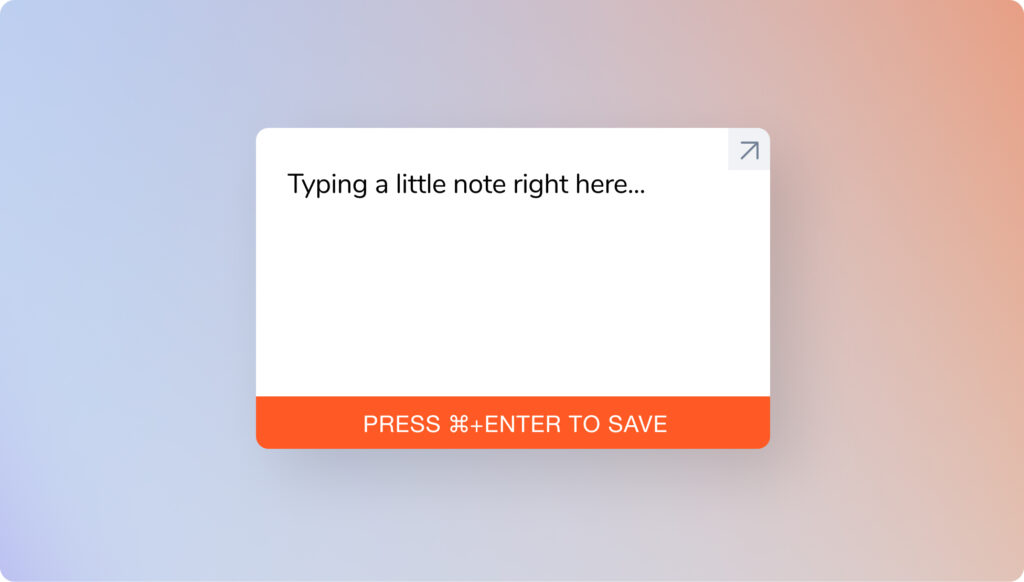


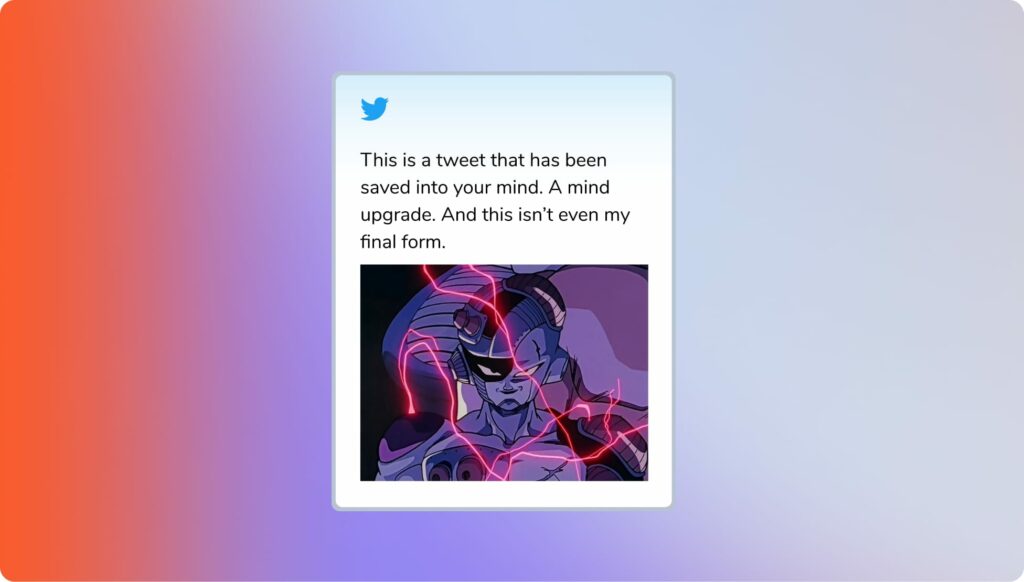

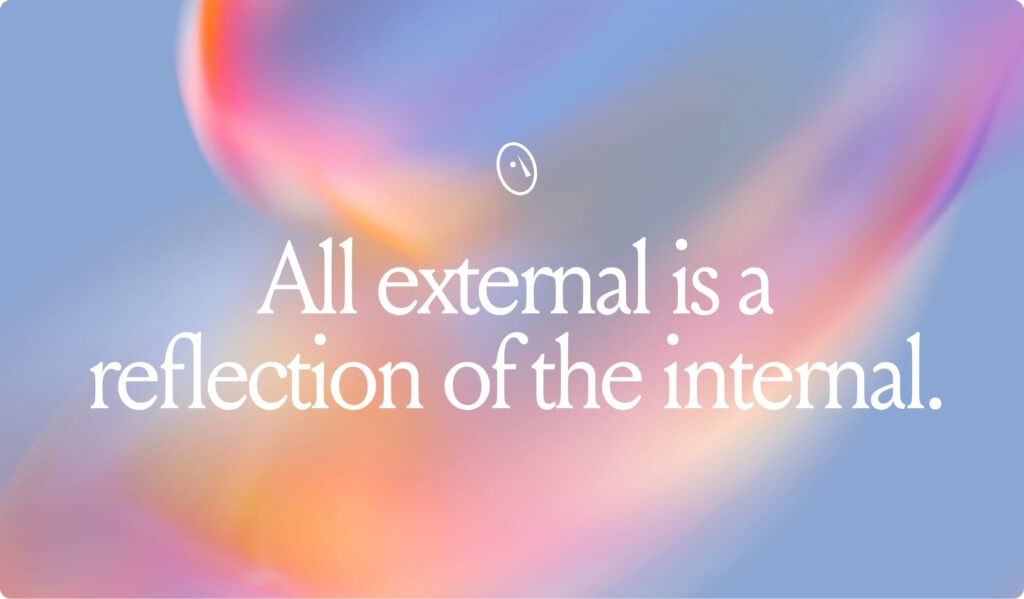


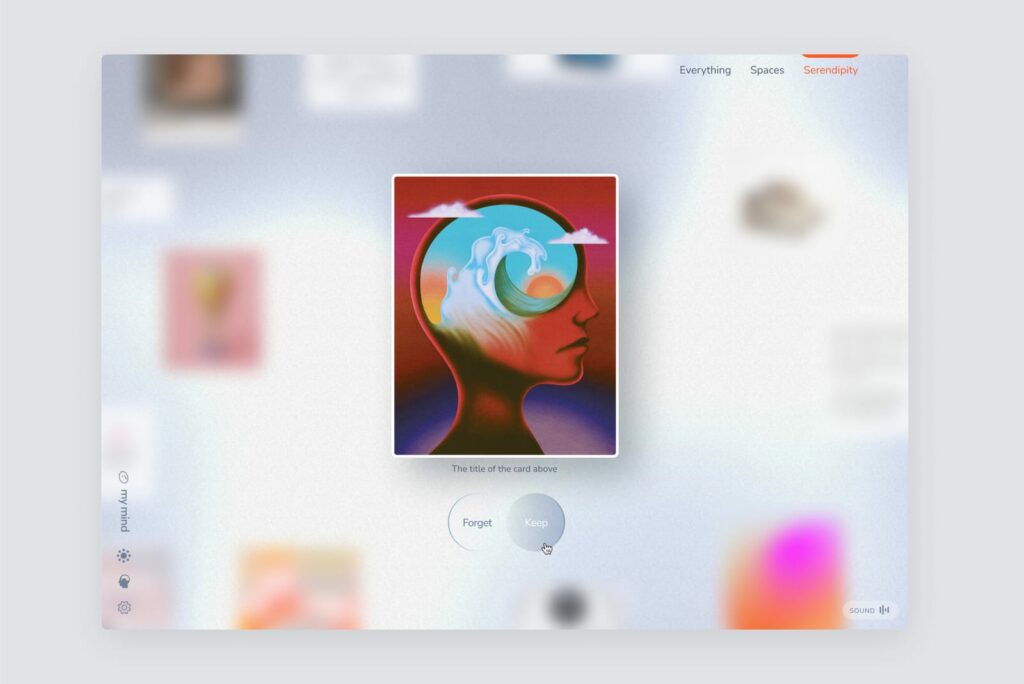

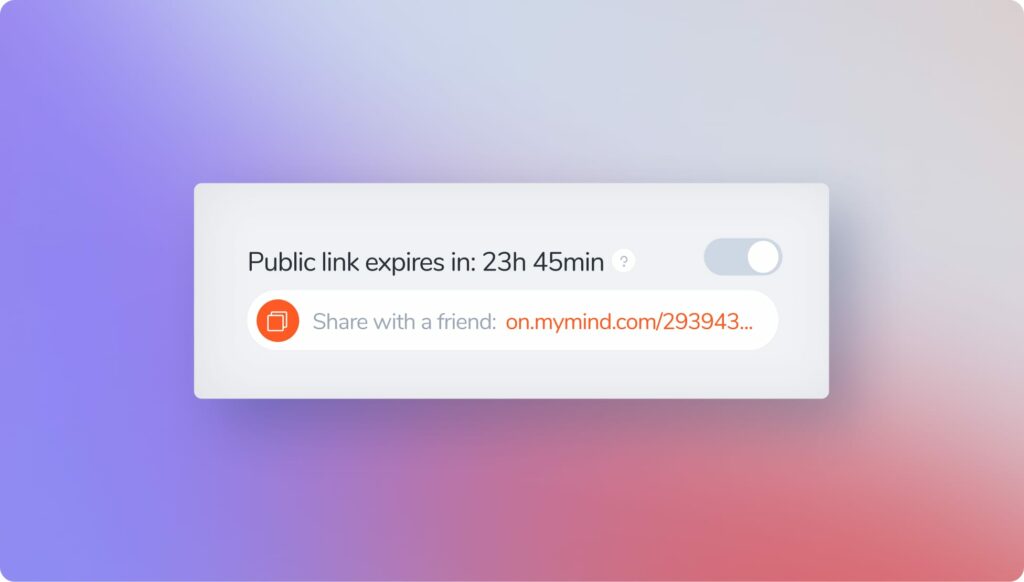
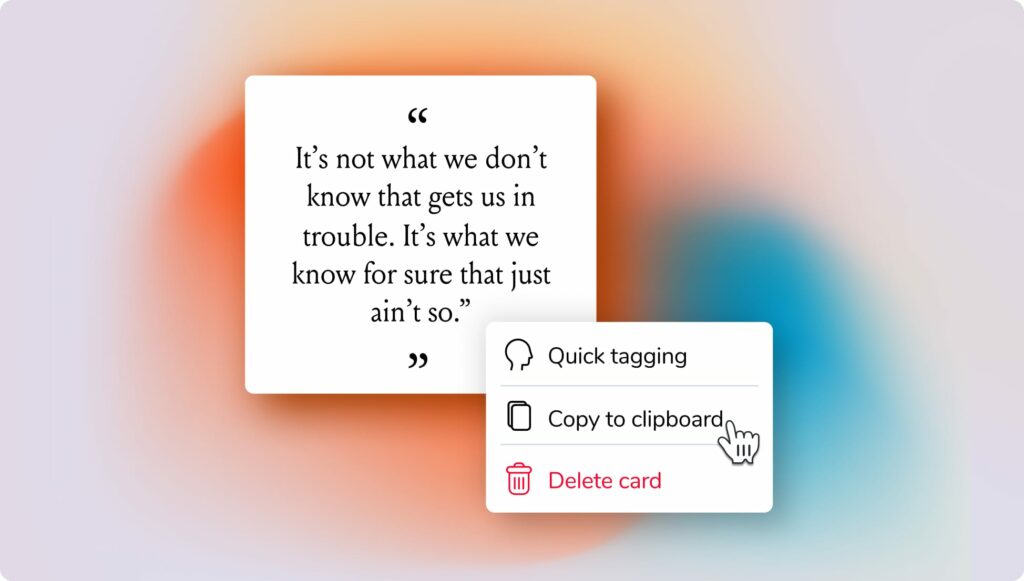

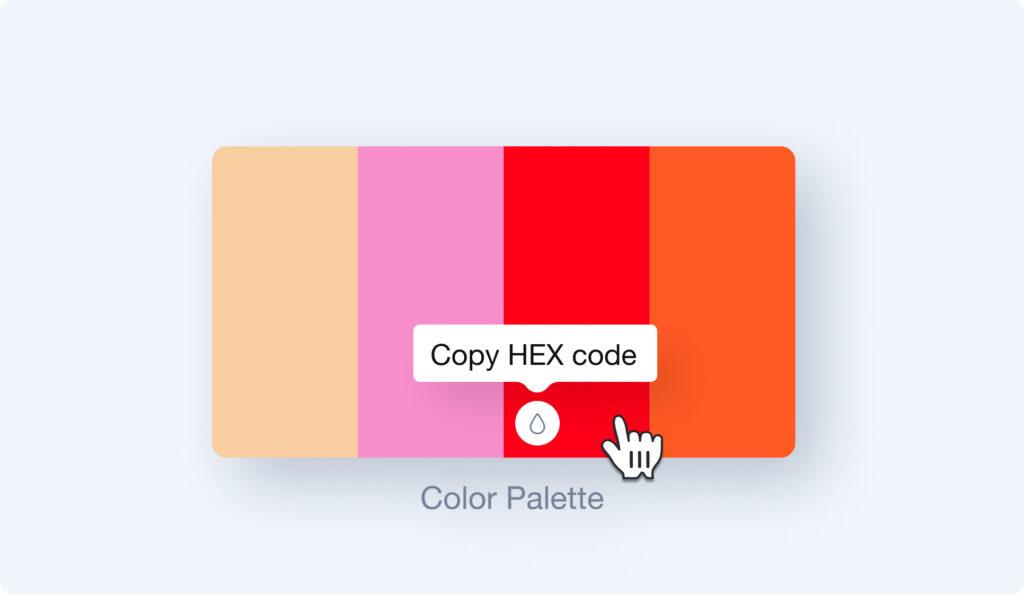

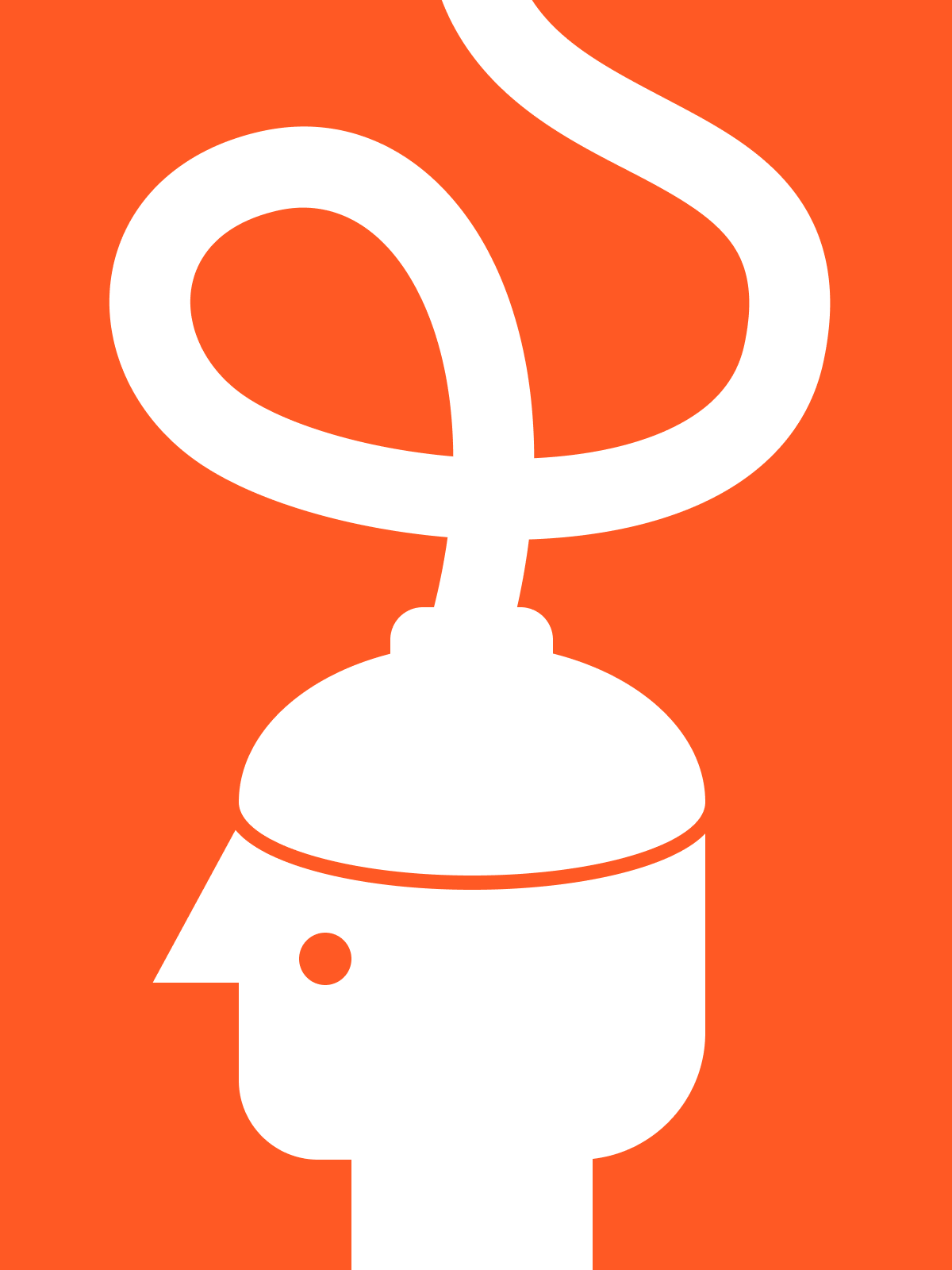
 Implicit memories
Implicit memories